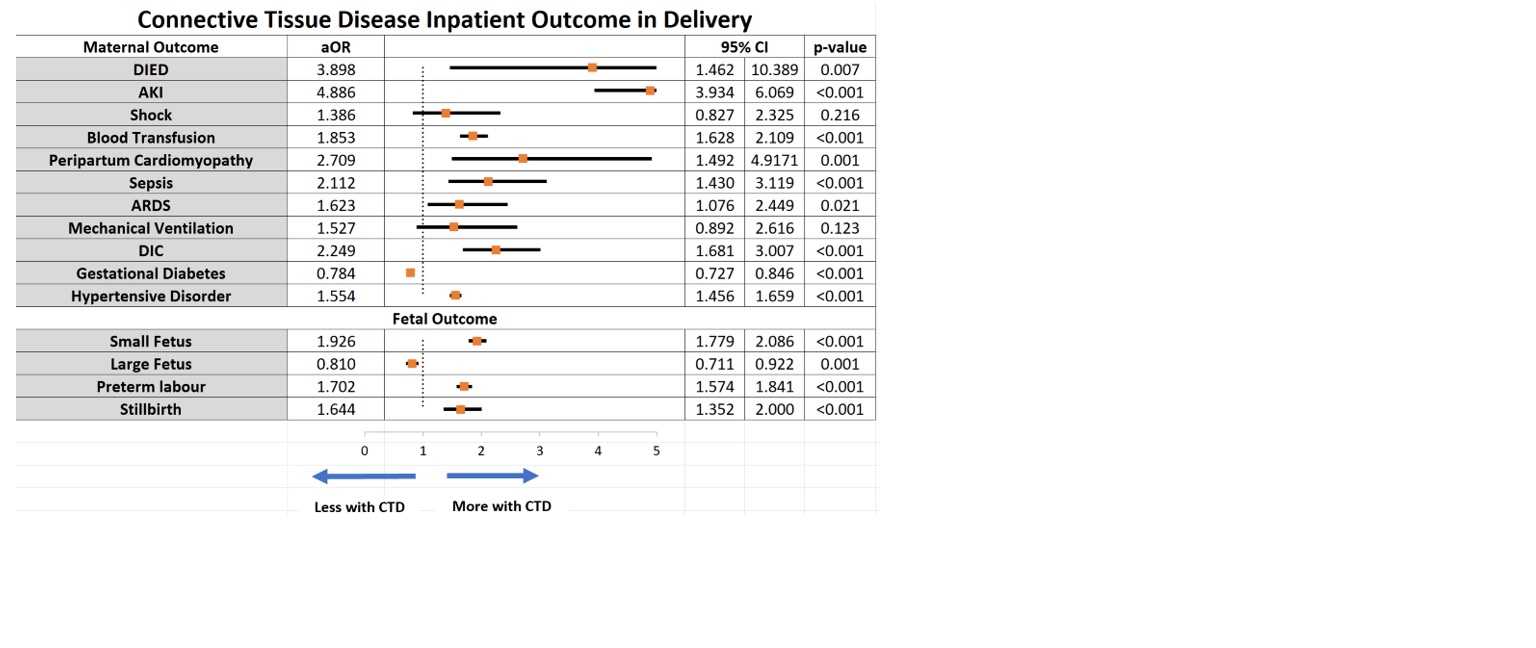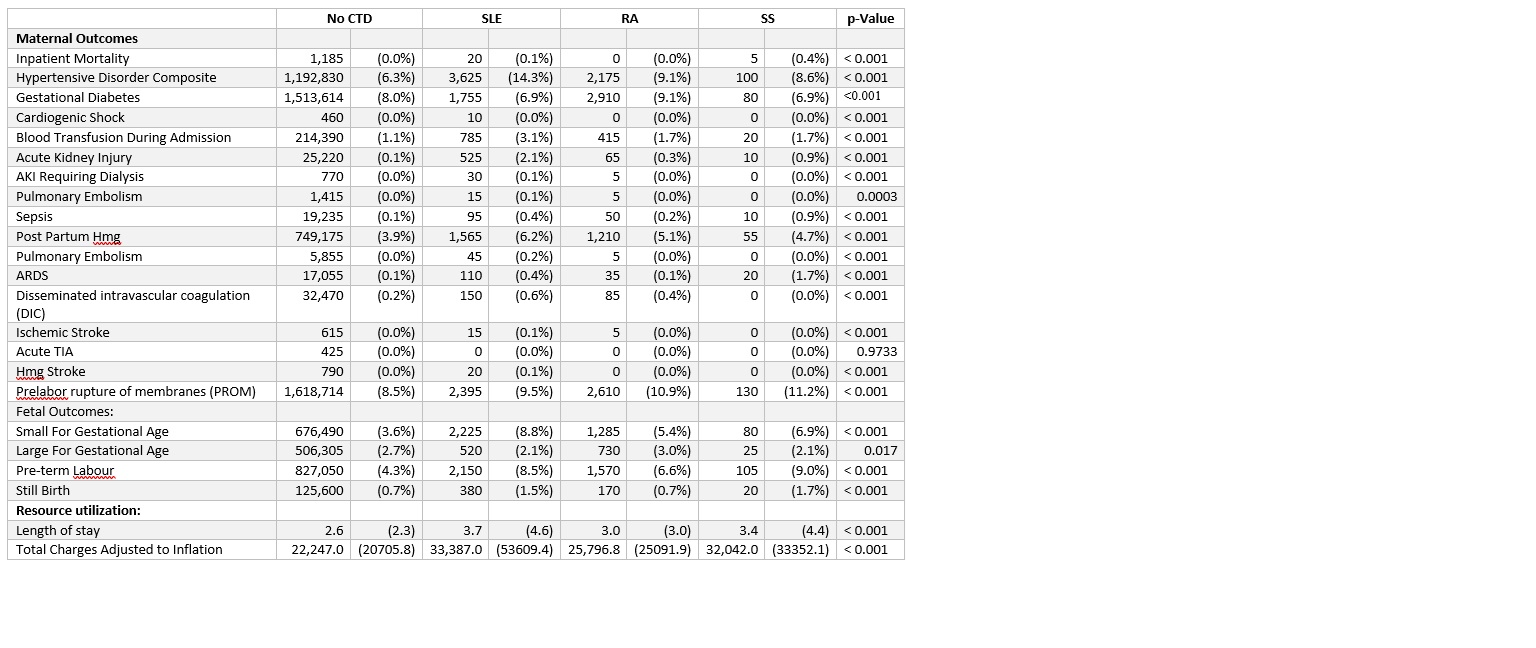Session Information
Session Type: Poster Session A
Session Time: 10:30AM-12:30PM
Background/Purpose: Autoimmune connective tissue diseases (CTD) predominantly affect women during their reproductive years. CTDs such as systemic lupus erythematosus (SLE), rheumatoid arthritis (RA), and systemic sclerosis (SS) have been associated with maternal and fetal complications. We aim to evaluate pregnancy outcomes in patients with and without CTD.
Methods: We conducted a population-based, retrospective cohort study using the national inpatient data sample to compare pregnancy and fetal outcomes in patients with and without CTD delivering between October 2015 and December 2020. Regression analysis was performed and adjusted for multiple patient characteristics to compare outcomes.
Results: Our study comprised of 18,866,050 deliveries, of which 50,450 (0.02%) had autoimmune CTD, including 25,340 with SLE, 23,945 with RA, and 1,165 with SS. Regression analysis revealed a higher risk of maternal death, hypertensive disorders, AKI, blood transfusions, sepsis, ARDS, DIC, small for gestational age, stillbirth, and preterm labor in CTD patients. On subgroup analysis, patients with SLE were more likely to have hypertensive disorders of pregnancy, AKI, DIC, small for gestational age fetus and require blood transfusions (p< 0.001). Patients with SS had higher odds of maternal death, ARDS, peripartum cardiomyopathy, requiring mechanical ventilation, still birth and preterm labor. Patients with RA had lower odds of poor outcomes compared to patients with SLE or SS.
Conclusion: Our study reveals that pregnant patients with autoimmune CTDs have worse maternal and fetal outcomes compared to those without CTDs. Preconception counseling should consider these risks, and tailored management strategies for pregnant women with CTDs are essential for optimizing outcomes.
To cite this abstract in AMA style:
Alrifai N, Puttur A, Alhuneafat L, Ghanem F, Dhital y, Jabri A, Feinstein D. Maternal and Fetal Outcomes in Those with Autoimmune Connective Tissue Disease [abstract]. Arthritis Rheumatol. 2024; 76 (suppl 9). https://acrabstracts.org/abstract/maternal-and-fetal-outcomes-in-those-with-autoimmune-connective-tissue-disease/. Accessed .« Back to ACR Convergence 2024
ACR Meeting Abstracts - https://acrabstracts.org/abstract/maternal-and-fetal-outcomes-in-those-with-autoimmune-connective-tissue-disease/



